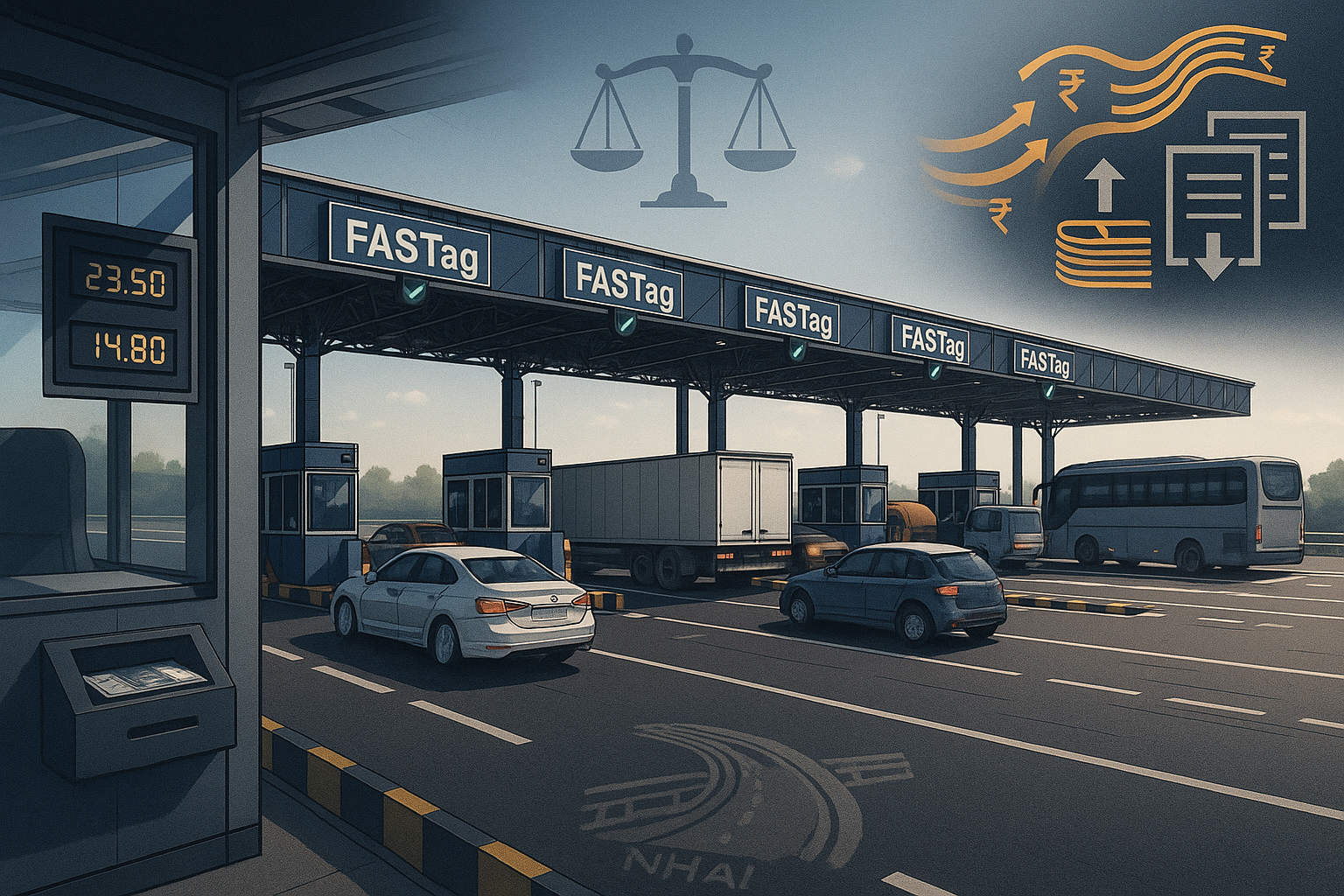In a significant policy move, the government has decided to compensate toll operators for revenue shortfalls caused by the sale of annual passes. This comes as part of a larger effort to ensure fairness in highway revenue collection while balancing public interest and investor confidence.
The decision is expected to bring relief to concessionaires operating under the National Highways Authority of India (NHAI), many of whom have raised concerns that discounted or subsidized passes distort their projected toll income. By covering this gap, the government aims to uphold contractual commitments and maintain financial stability in the road infrastructure sector.
Why Toll Operators Needed Support
Toll collections form the backbone of revenue for highway concessionaires. However, the introduction of annual and monthly passes at lower effective rates created discrepancies between actual revenue collected and the projected toll earnings outlined in concession agreements.
Many concessionaires argued that reduced revenue inflows weakened their debt servicing capacity, affecting long-term viability.
Investors and lenders also highlighted that unless these gaps were addressed, future investments in road infrastructure projects could be deterred.
By agreeing to compensate for these shortfalls, the government has reinforced its commitment to public-private partnership (PPP) stability.
Framework for Compensation
The payout mechanism is expected to follow a transparent and formula-based model, where operators will be reimbursed for verified revenue losses arising specifically from annual passes.
Verification protocols will ensure only genuine shortfalls are covered.
Independent audits may be introduced to confirm claims and avoid inflated reimbursements.
This structured approach will help maintain accountability while protecting operator interests.
Broader Implications for Infrastructure and Policy
This move is not just about toll operators — it reflects the government’s broader strategy of balancing infrastructure growth with investor protection.
Investor Confidence: Ensures that private players remain committed to funding and operating highways.
Public Interest: Retains affordability for commuters using annual or monthly passes.
Systemic Stability: Reinforces the credibility of PPP models, crucial for India’s ambitious highway expansion targets.
Policy Credibility: Shows willingness to adapt policies in response to on-ground realities.
Why This Matters
The decision could set a precedent for future PPP arrangements in other sectors like power, ports, and airports, where tariff concessions may also affect investor returns. It underlines the government’s intent to maintain trust, predictability, and balance in infrastructure financing.
Protects lenders and investors from unforeseen risks.
Strengthens India’s PPP ecosystem.
Encourages long-term private sector participation in national infrastructure.
Enhances the government’s reputation as a fair contractual partner.












